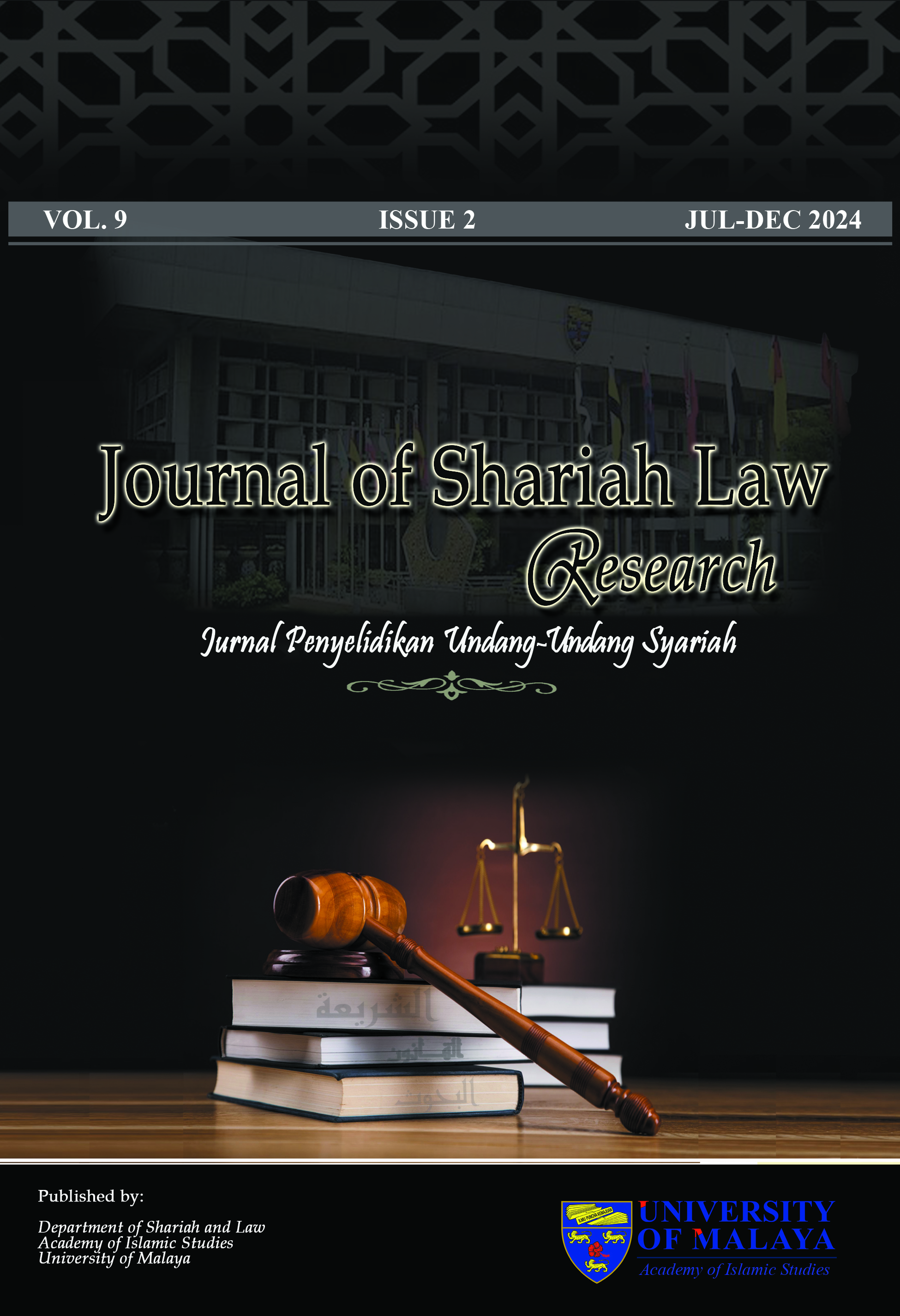THE ENFORCEMENT OF THE PUNISHMENT FOR THEFT UNDER THE SHARIAH PENAL CODES OF NORTHERN NIGERIA
Keywords:
Shariah, Shariah Penal Code, ḥudūd, Shariah enactment, NigeriaAbstract
In 1999/2000, the introduction and application of Shariah Penal Codes in Nigeria, specifically pertaining to theft (sariqah), underwent significant changes. During this period, twelve Nigerian states embraced Shariah as a legal system alongside existing penal and civil laws in specific instances. Responding to this shift, seven of these states formally enacted Shariah Penal Codes as legal instruments for the state. Despite facing criticism from various quarters, including both Muslims and non-Muslims nationwide, these Shariah laws have been either fully or partially implemented and have become integral components of the legal framework in those states. The offense of theft, referred to as sariqah, is one of the transgressions addressed in these Shariah Penal Codes. This paper seeks to evaluate the provision for the offense of theft within the Shariah Penal Codes, scrutinizing its alignment with the principles of Islamic Criminal Law. Employing a historical research method, the author collected data through a combination of interviews and observations. The author visited states where Shariah laws were implemented to obtain first hand information and engaged with officials in Shariah courts. The research findings indicate that, while the provision for the offense of theft in Shariah Penal Codes is generally considered adequate, challenges may arise in the practical implementation and enforcement of these laws. A comprehensive exploration of the extent of alignment with Islamic Criminal Law and an examination of potential areas for improvement or challenges in practice were addressed in the complete research. Recognizing that this analysis is not exhaustive, there is a pressing need for a review and harmonization of laws across the concerned states.
Downloads
References
A group of Authors (1424 A.H). al-Fiqh al-Islāmī fī Daw’ al-Kitāb wa al-Sunnah, vol 1. Saudi Arabia: King Fahd Press.
Al-Andalūsī, Muḥammad Yūsuf. (1420 A.H) al-Baḥr al-Muḥīṭ fī al-Tafsīr, vol. 3. Bayrūt: Dār al-Fikr.
Al-‘Arabī, M. A. (1988). Aḥkām al-Qur’ān, vol. 3. Bayrūt: Dār al-Fikr.
Al-Bukhārī, Muḥammad Ibn Ismā‘īl (1442 A.H). Ṣaḥīḥ al-Bukhārī, vol 4. Bayrūt: Dār Ṭawq al-Najat.
Al-Juzayrī, A. (2000). al-Fiqh ‘ala al-Madhāhib al-Arba‘ah, vol. 5. Qāhirah: Dār al-Fajr li al-Turāth.
Al-Zuḥaylī, Wahbah Muṣṭafā (n.d.). al-Fiqh al-Islāmī wa Adillatuh, vol 7. Dimashq: Dār al-Hijr.
Belgore, A. O. (2000). “History of Shari’ah in Nigeria”, Paper Presented at the 1999 Nigerian Constitution and the Shari’ah Conference, Organized by the College of Arabic and Islamic Legal Studies, Ilorin, 15-19 February.
Duku, Muhammad (2022). “The Aftermath of 21st Century Sharia Implementation in Northern Nigeria,” Media of Law and Shariah, vol. 3, no. 2.
https://www.vanguardngr.com/2012/05/sharia-zamfara-rehabilitates-amputees
Kumo, S. (1988). “The Application of Islamic Law in Northern Nigeria: Problems and Prospects,” in Islamic Law in Nigeria, ed. K. Rashid. Lagos: Islamic Publications Bureau.
Mahmud, A. B. (1988). A Brief History of Shari’ah in the Defunct Northern Nigeria. Jos: University Press.
Milner, A. (1962). “Sentencing Patterns in Nigeria”, in African Penal System, ed. A. Milner. London: Routledge and Kegan Paul.
Muhammad, Y. (1993). al-Ifsah an Ma’anis Salaf fī al-Fiqh ‘ala al-Madhāhib al-Arba‘ah. Qāhirah: Maktabah al-Fajr.
National Bureau of Statistics, National Poverty Rate 2003-04 (Revised) and 2009-10 abridged report
Record Book of TalataMafara Upper Sharicah Court, Kano. Suit: USC/CR/21/2000. Date of Judgment: 21st February 2000.
Ruxton, F. X. (1974). Maliki Law. Being A Summary from French Translations of the Mukhtasar of Sidi Khalil. London: Luzac and Company.
Sābiq, S. (1977). Fiqh al-Sunnah, vol. 2. Bayrūt: Dār al-Kitāb al-‘Arabī.
Sami ulHaq, Muhammad Ikramullah and Rehman, Badshah (2020). “Punishment of theft in Islam and its Enforcement in Pakistan,” Journal of Islamic and Religious Studies, vol. 5.





